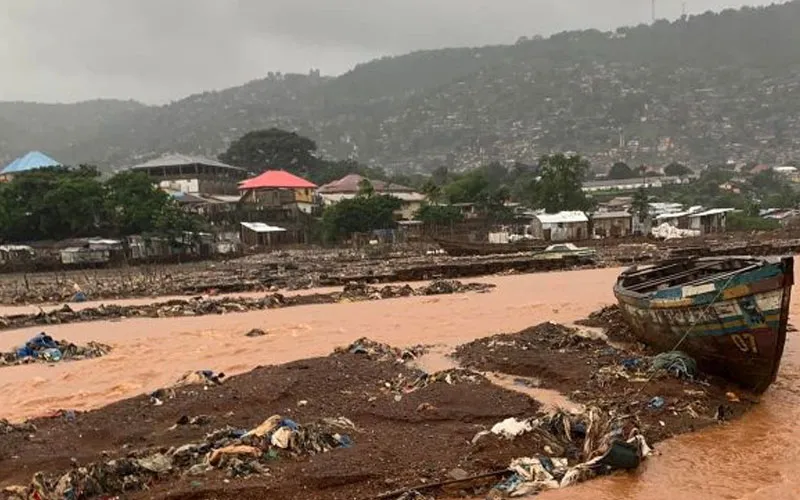Freetown, 01 September, 2022 / 9:45 pm (ACI Africa).
Caritas Freetown in Sierra Leone is rallying for support to help tens of thousands of victims of deadly floods that hit communities in the country’s Western region, leaving scores dead in their wake.
In a Wednesday, August 31 interview with ACI Africa, Caritas Freetown Executive Director, Fr. Peter Konteh, said that the floods, which occurred from August 14 to 17 and between August 27 and 28 had caused a lot of devastation to the locals, rendering more than 10,000 people in some communities homeless.
Fr. Konteh told ACI Africa that Caritas Freetown Disaster Response Team had swung into action, and that as of August 31, was completing an assessment of disaster-affected communities within the region.
He said that the assessment was to attract as much support as possible to the victims of the floods in roughly 20 communities that had been affected by the two separate flooding incidents and mudslides.
“We are sharing our initial assessment with trusted partners for the aim of collaboration. If any organization is able and willing to collaborate on any of the affected areas at this time, a joint assessment will further investigate these challenges and guide partner response,” Fr. Konteh said.








